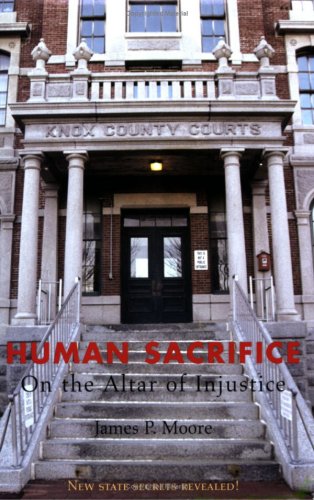Trial and Error
The Outcry for Justice in the Dennis Dechaine Case
What Happened?
Rush to judgment meets the wrong person / time / place
Dennis Dechaine, a 30-year-old otherwise hard-working Bowdoinham, Maine farmer with two college degrees, spent the afternoon of July 6, 1988 foolishly but innocently getting high and rambling around in the woods. He emerged into the waiting arms of law enforcement, who were out looking for a missing girl.
Two days later, the stark reality of the situation came clear: Sarah Cherry, a 12-year-old girl abducted from her first baby-sitting job, was found tortured, murdered and partially buried under leaves in the woods. Because the actual perpetrator had used objects taken from Dennis’s parked truck to commit the crime, and misled police by dropping items identifying the young farmer at the site of the initial abduction, investigators ignored or contaminated significant evidence of the real perpetrator’s identity and put all their energy into building a case against the man they already had in custody.
Despite Dennis Dechaine’s claims of innocence, the jury found the prosecution’s case persuasive. They were told, falsely, that there were no other suspects but were not told that the coroner’s report indicated the defendant was already under police control at the time Sarah was actually killed. The trial judge ruled against defense’s request for DNA testing which, finally conducted years later, identified DNA under the victim’s thumbnail as belonging to a male who was not Dennis. The prosecution’s case rested entirely upon a combination of circumstantial evidence more readily explained as a frame-up and upon investigators’ sworn testimony of alleged confessions later discovered to be contradicted by their own police notes. Dennis was found guilty and sentenced to life without parole.
Nearly three decades of controversy have followed, in much of which there appears a pattern. Supporters of Dennis—initially childhood friends and family from Aroostook County, plus former ATF and Interpol agent Jim Moore, whose attempt to disabuse them of their belief in Dennis’s innocence was reversed by his own investigation—have now grown into the thousands. The Innocence Project supports Dennis’s claim of innocence. The State Legislature has several times acted in his favor. Nationally renowned forensic pathologists have confirmed the time-of-death exclusion of Dennis as the perpetrator. In short, virtually all of the State’s circumstantial case for guilt has been replaced by one for innocence based on scientific evidence and logic.
At the same time, the courts and the Maine Attorney General’s Office have blocked every attempt to give a jury a chance to consider all the evidence in a re-trial. This resistance has included incineration of likely valuable DNA evidence shortly after Dennis filed a motion for testing. While the wrongfully convicted are being exonerated by the hundreds elsewhere in the country, often with the cooperation and apology of the state, nearly all of Dennis’s appeals and motions have been denied. He remains in Maine State Prison, hoping against hope that Fate will finally reconsider and make him the right person at the right time and place, before a jury allowed to hear the whole story. Until then, this website must provide that opportunity.
